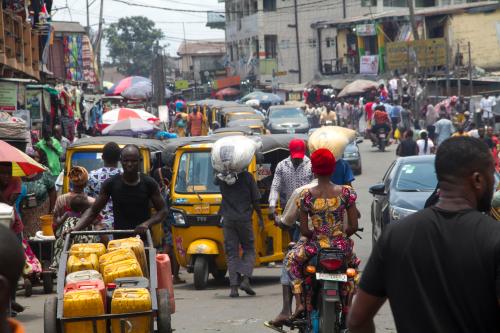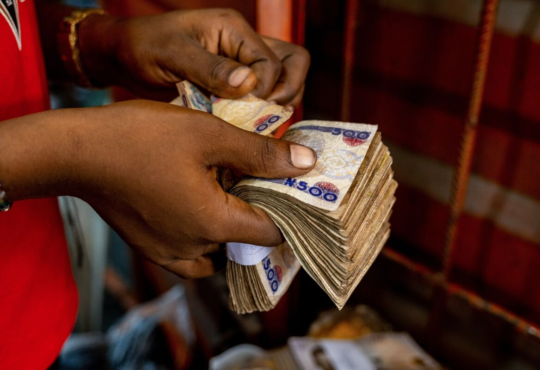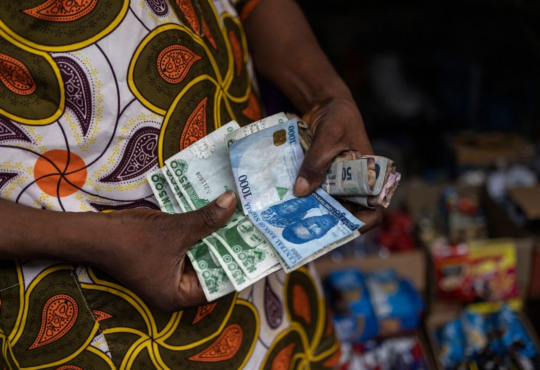Dangote refinery opens amid fanfare, hopes to match Nigerian fuel demand in 2023 – S&P Global

In this week’s Market Movers Americas, presented by Phillipe Craig: • US steel sentiment rises…
ISO New England forward power and natural gas prices softened slightly on month in November trading…
Dangote refinery opens amid fanfare, hopes to match Nigerian fuel demand in 2023
Jet Fuel
Grangemouth’s closure: insights into the changing global refining landscape
APPEC 2024
COP28: Phaseout of fossil fuels removed from revised global stocktake text
Dated Brent Price Assessment
Insight Conversation: Ezran Mahadzir, Petronas LNG
President Buhari formally commissions long-awaited refinery
Dangote says project will meet Nigerian gasoline demand in 2023
Questions remain over crude supply amid waning Nigerian output
The Dangote refinery is aiming to meet 100% of Nigerian refined product demand before the year is out, billionaire industrialist Aliko Dangote said May 22 as his landmark 650,000 b/d plant was finally commissioned after years of postponements and ballooning costs.
Receive daily email alerts, subscriber notes & personalize your experience.
Nigerian president Muhammadu Buhari on May 22 commissioned the $18.5 billion project, which is widely expected to make Nigeria self-sufficient in fuels, at a ribbon-cutting ceremony attended by the presidents of Ghana, Togo, Niger and Senegal.
“Beyond today’s ceremony, our first goal is to ramp up production of the various products to ensure that within this year, we are able to fully satisfy the nation’s demand for quality products,” Dangote, Africa’s richest man, told attendees at the plant on the outskirts of Lagos. “We have built a refinery with a capacity to process 650,000 b/d in a single train — which is the largest in the world. We have selected the best plants, equipment, and the latest technologies from across the world.”
Nigeria is Africa’s biggest crude producer, but run-down refineries mean it imports refined products. For years Nigeria’s government has maintained an extremely costly fuel subsidy, while gasoline imports have drained the country’s foreign exchange reserves.
The refinery “will enable our country to achieve self-sufficiency in refined products and even have some surplus for export,” said Buhari, who leaves office in June. “This clearly makes this event a notable milestone for our economy and a game-changer for the downstream petroleum products market not only in Nigeria but the entire African continent.”
Powered by a 435-MW power plant and also featuring a deep sea port, the refinery has been billed as a major step towards energy security in Africa. “We will ensure that our plant runs at the highest capacity utilization and highest efficiency to meet not only Nigeria’s needs but also African countries’ petroleum products demand,” Dangote said. “Forty percent of our plant capacity will be for export.”
While the plant’s operators say refining will begin in June, analysts expect the refinery to start up later this year and slowly ramp up. Uwadiae Osadiaye, an analyst at Lagos-based FBNQuest, said Nigerian crude exports and refined product imports remain unaffected, suggesting the refinery has not yet built up feedstock. First mooted in 2014 at an estimated cost of $9 billion, the refinery has faced lengthy delays.
According to Dangote Group, the refinery will produce Euro V quality gasoline and diesel, as well as jet fuel and polypropylene, meaning it could reshape the Atlantic basin gasoline market.
![]()
![]()

However, questions remain over crude supply to the plant. Nigeria has struggled to produce more than 1.2 million b/d in recent years, well below its 2.5 million b/d capacity, due to oil theft, underinvestment and technical and operational issues.
Nigerian National Petroleum Corporation, which holds a 20% stake in the refinery project, has agreed to supply the Dangote refinery with 300,000 b/d of crude, just half of the plant’s capacity.
Mele Kyari, NNPC group CEO, said at the ceremony that the refinery would provide a major outlet for Nigerian crude, which has struggled to find buyers on the international market recently. “It offers the opportunity to sell our crude in the domestic as well as regional market, as against simply exporting unprocessed crude to diminishing markets overseas,” Kyari said.
However, in a factsheet, Dangote Group said the refinery was designed to process a plethora of crudes, “including many of the African crudes, some of the Middle Eastern crudes, and the US light tight oil.”
To continue reading you must login or register with us.
It’s free and easy to do. Please use the button below and we will bring you back here when complete.






